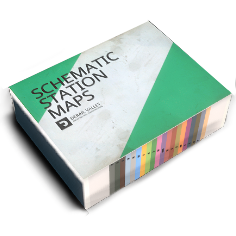Livello d’acqua
When running steam engines, the most critical responsibility is to maintain a nominal level of water in the boiler. This is done by observing a water gauge and adjusting the water level accordingly. The water level should always be visible within the water gauge, typically ranging between 75% and 85% of the boiler height.
If water rises above the limit, there are two potential dangers - there is less room for steam to be generated in, and water can overflow into the cylinders, potentially causing them to break.
If water falls under the limit, the boiler can explode and cause catastrophic damage. If the firebox is sufficiently hot and its top surface, known as “crown sheet”, protrudes above the water level, it can soften from high temperatures and pressure, and lead to the boiler explosion.
In an emergency attempt to save the engine from explosion, immediately feed water and dump coal from the firebox.
Water is fed to the boiler from storage using an injector. It is dumped from the boiler using a blowdown valve, usually found in a vehicle's cab.
Il livello dell'acqua è influenzato anche dall'espansione termica. Man mano che la temperatura aumenta, il suo livello aumenterà allo stesso modo, anche se non viene aggiunta nuova acqua alla caldaia.
Il livello dell'acqua dipende dalla pendenza del terreno ed è solito ondeggiare. Procedendo in discesa, il livello dell'acqua appare più basso di quello effettivo, osservabile in piano, e viceversa.
